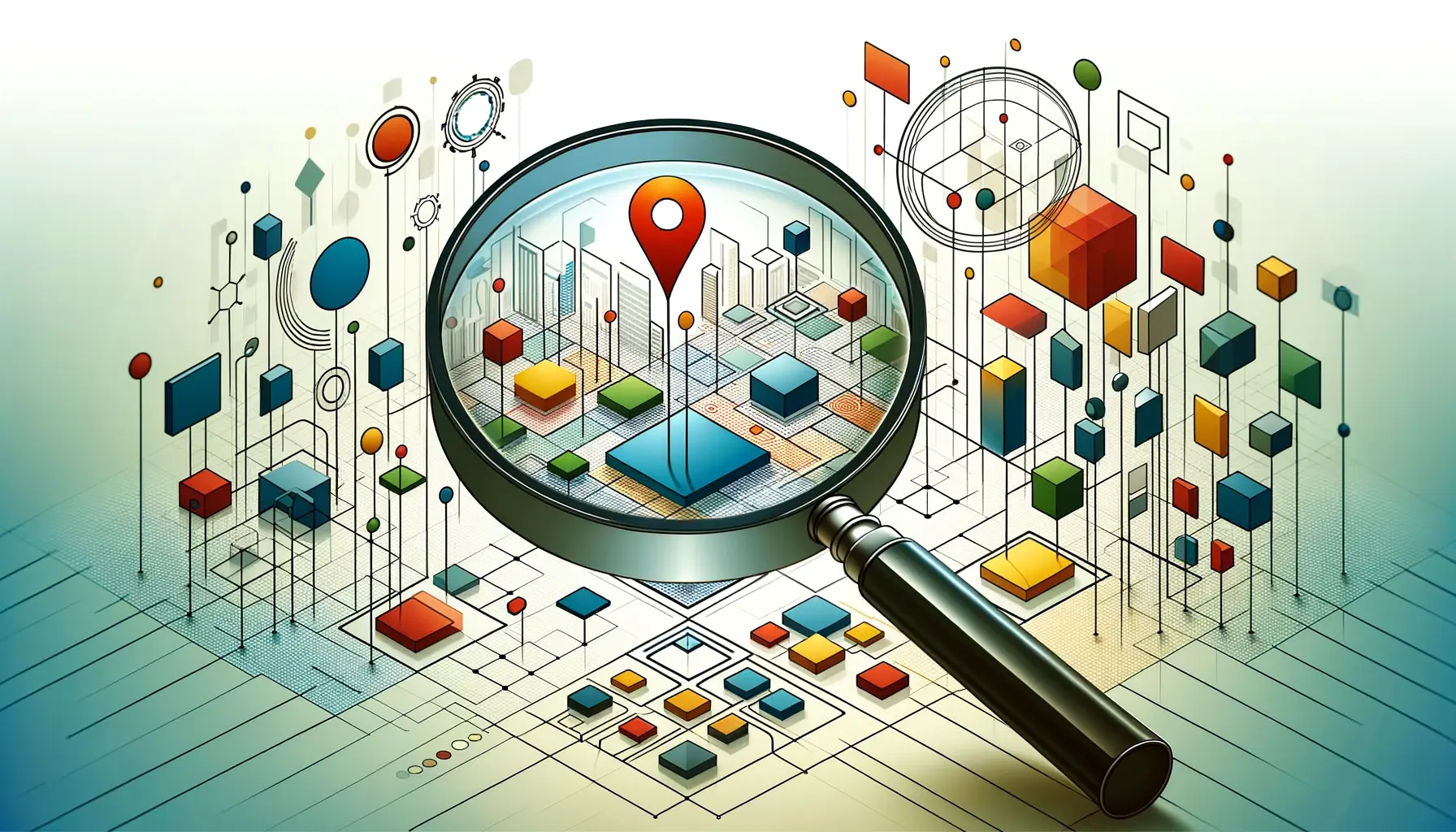In the realm of scientific research, the advent of advanced artificial intelligence tools has marked a new era of innovation and efficiency.
Among these, ChatGPT 4 stands out as a transformative force, offering unprecedented capabilities in processing, analyzing, and generating human-like text based on a vast database of knowledge.
This article delves into how ChatGPT 4 is revolutionizing the field of research, propelling forward the frontiers of discovery across various disciplines.
With its cutting-edge language model, ChatGPT 4 is not just a tool for automating mundane tasks; it is a partner in the creative process, enabling researchers to explore new hypotheses, analyze complex data sets, and disseminate findings with greater ease and accuracy.
The implications of this technology extend far beyond mere convenience, promising to accelerate the pace of discovery and foster a deeper understanding of the world around us.
- Understanding ChatGPT 4’s Role in Research
- ChatGPT 4’s Impact on Collaborative Research
- Innovating Research Methodologies with ChatGPT 4
- Overcoming Research Challenges with ChatGPT 4
- ChatGPT 4 and the Democratization of Research
- Future Directions: ChatGPT 4 and Beyond
- Expanding the Horizons of Interdisciplinary Research
- Charting the Future with ChatGPT 4 in Research
- ChatGPT 4 for Research: Frequently Asked Questions
Understanding ChatGPT 4’s Role in Research
The Foundation of ChatGPT 4
At its core, ChatGPT 4 is built upon a sophisticated neural network trained on a diverse range of internet text.
This extensive training enables the model to understand and generate text with a level of nuance and complexity that mirrors human language.
For researchers, this means access to a tool capable of engaging with a wide array of topics, from the most abstract theoretical concepts to the most detailed empirical data.
The versatility of ChatGPT 4 makes it an invaluable asset across all stages of the research process.
Whether it’s drafting literature reviews, synthesizing research findings, or generating hypotheses, ChatGPT 4 can handle tasks that traditionally require significant time and effort.
This not only streamlines the research workflow but also opens up new avenues for exploration and analysis that were previously out of reach.
Accelerating Literature Review and Data Analysis
One of the most time-consuming aspects of research is the literature review process.
ChatGPT 4 simplifies this task by quickly summarizing relevant studies, highlighting key findings, and even suggesting potential gaps in the literature.
This allows researchers to stay abreast of the latest developments in their field without dedicating countless hours to reading and note-taking.
Similarly, in data analysis, ChatGPT 4’s ability to process and interpret large datasets can uncover insights that might elude human researchers.
By asking ChatGPT 4 to analyze data patterns, researchers can formulate hypotheses or draw conclusions with a higher degree of confidence, ensuring that their work is both innovative and grounded in solid empirical evidence.
ChatGPT 4’s impact on research extends beyond mere efficiency; it is a catalyst for innovation, enabling researchers to tackle complex problems with a new level of depth and breadth.
ChatGPT 4’s Impact on Collaborative Research
The integration of ChatGPT 4 into the research ecosystem has not only streamlined individual research processes but also significantly enhanced collaborative efforts.
By facilitating seamless communication and idea exchange, ChatGPT 4 is fostering a more interconnected and dynamic research community.
This section explores how ChatGPT 4 is reshaping collaborative research, making it more accessible, inclusive, and productive.
Collaboration is the cornerstone of groundbreaking research.
The ability to share insights, challenge assumptions, and build upon each other’s work can lead to discoveries that change the world.
ChatGPT 4 is playing a pivotal role in this collaborative endeavor by breaking down barriers and creating new platforms for interaction:
- Enhancing Communication: ChatGPT 4’s advanced language capabilities enable researchers from different backgrounds and languages to collaborate more effectively. By providing real-time translation and interpretation, it ensures that language barriers do not impede the free flow of ideas.
- Facilitating Idea Generation: The AI’s ability to quickly process and generate information can stimulate creative thinking and idea generation among research teams. ChatGPT 4 can propose novel hypotheses or suggest alternative approaches to a problem, sparking productive discussions and leading to innovative solutions.
- Streamlining Project Management: Managing a collaborative research project involves coordinating tasks, deadlines, and contributions from various team members. ChatGPT 4 can assist in organizing these elements, ensuring that projects stay on track and researchers can focus on their core work without getting bogged down in administrative details.
Case Studies of Successful Collaborations
Real-world examples underscore the transformative impact of ChatGPT 4 on collaborative research.
For instance, a multidisciplinary team spanning five countries recently published a study on climate change mitigation strategies.
Utilizing ChatGPT 4, the team was able to integrate diverse datasets and research findings, overcoming language barriers and disciplinary jargon to produce a comprehensive analysis that has since informed policy recommendations at the international level.
Another example is a medical research team using ChatGPT 4 to develop a novel diagnostic tool for early detection of neurodegenerative diseases.
By leveraging the AI’s data analysis capabilities, the team identified previously unnoticed patterns in patient data, leading to breakthroughs in understanding the disease’s progression and potential intervention points.
The potential of ChatGPT 4 to revolutionize collaborative research is vast. As technology continues to evolve, its role in facilitating groundbreaking discoveries through enhanced collaboration will only grow more significant.
Innovating Research Methodologies with ChatGPT 4
The advent of ChatGPT 4 has not only enhanced existing research practices but also introduced innovative methodologies that were previously unimaginable.
This paradigm shift is evident across various stages of the research process, from hypothesis generation to data collection and analysis.
By leveraging ChatGPT 4, researchers can now approach their inquiries with a fresh perspective, employing methods that are more efficient, accurate, and comprehensive.
ChatGPT 4’s impact on research methodologies is profound, offering tools that refine and expand the ways in which data is interpreted and understood:
- Automated Hypothesis Generation: Traditionally, formulating hypotheses required extensive knowledge and intuition. ChatGPT 4 automates this process, suggesting potential hypotheses based on the latest research findings and data trends. This not only speeds up the research initiation phase but also introduces a level of creativity and innovation by proposing hypotheses that may not be immediately obvious to human researchers.
- Enhanced Data Collection Techniques: ChatGPT 4 can assist researchers in designing surveys, questionnaires, and other data collection tools that are more engaging and less prone to bias. By analyzing responses in real-time, it can also suggest adjustments to the data collection process to ensure a more diverse and representative dataset.
- Advanced Data Analysis: Perhaps one of the most significant contributions of ChatGPT 4 is in the area of data analysis. With its ability to process vast amounts of information rapidly, ChatGPT 4 can identify patterns, correlations, and insights that might elude traditional analysis methods. This capability is particularly valuable in fields dealing with large-scale data sets, such as genomics and epidemiology.
Transforming Qualitative Research
Qualitative research, with its emphasis on understanding complex human behaviors and societal trends, has also benefited from ChatGPT 4.
The AI’s natural language processing capabilities allow it to analyze interviews, social media posts, and other forms of qualitative data with a depth and nuance that matches human analysis.
Moreover, ChatGPT 4 can help synthesize these findings into coherent themes and narratives, making the data more accessible and actionable for researchers.
In an era where the volume of data continues to grow exponentially, ChatGPT 4’s ability to sift through and make sense of this information is invaluable.
It not only accelerates the research process but also ensures that the conclusions drawn are based on a comprehensive and nuanced understanding of the data.
The innovation in research methodologies brought about by ChatGPT 4 marks a significant leap forward in our quest for knowledge. As researchers continue to explore and refine these new approaches, the potential for discovery and understanding across all fields of inquiry is boundless.
Overcoming Research Challenges with ChatGPT 4
Research is a field fraught with challenges, from the initial stages of defining a problem to the final steps of publishing findings.
These obstacles can slow down progress, limit the scope of investigations, and, in some cases, prevent valuable research from being conducted at all.
ChatGPT 4, with its advanced capabilities, is poised to help researchers overcome many of these hurdles, offering solutions that streamline the research process and enhance the quality of outcomes.
The application of ChatGPT 4 in research mitigates several common challenges, enabling a smoother and more efficient journey from hypothesis to publication:
- Access to Information: One of the primary obstacles in research is the sheer volume of existing literature. ChatGPT 4 can quickly sift through thousands of documents to find relevant information, summaries, and even suggest areas where further investigation is needed, significantly reducing the time spent on literature reviews.
- Data Overload: In the age of big data, researchers often find themselves overwhelmed by the amount of data available. ChatGPT 4’s ability to analyze and interpret large datasets can help researchers focus on the most relevant information, identifying trends and patterns that might not be immediately apparent.
- Interdisciplinary Collaboration: Bridging the gap between different fields of study can be challenging due to differences in terminology, methodologies, and perspectives. ChatGPT 4 facilitates interdisciplinary collaboration by translating complex concepts into accessible language, fostering a shared understanding among diverse research teams.
Enhancing Research Accuracy and Reliability
Accuracy and reliability are the cornerstones of credible research.
ChatGPT 4 contributes to these aspects by providing tools for error checking, data validation, and the simulation of research outcomes.
By automating these processes, ChatGPT 4 not only saves time but also reduces the likelihood of human error, increasing the overall integrity of research projects.
Furthermore, ChatGPT 4 can assist in the peer review process, offering preliminary reviews of research manuscripts to identify potential weaknesses or areas for improvement before submission to academic journals.
This pre-review process helps ensure that research meets the highest standards of quality and rigor, enhancing its chances of publication and impact.
ChatGPT 4’s role in overcoming research challenges is a testament to the power of AI in advancing human knowledge. By addressing key obstacles in the research process, ChatGPT 4 is not just a tool for researchers; it is a catalyst for innovation and discovery across all fields of study.
ChatGPT 4 and the Democratization of Research
The democratization of research refers to making research tools, data, and findings more accessible to a broader audience, including those without formal training or access to expensive resources.
ChatGPT 4 is at the forefront of this movement, breaking down barriers that have traditionally made research an exclusive domain of academics and professionals with specialized knowledge and resources.
By providing an intuitive interface and leveraging natural language processing, ChatGPT 4 enables a wide range of users to engage with complex research tasks.
This accessibility is transforming how research is conducted and who can participate in it:
- Empowering Non-Experts: ChatGPT 4’s ability to understand and generate human-like text allows individuals without a background in research to formulate queries, interpret data, and understand complex research findings. This opens up research opportunities to a much wider audience, including educators, journalists, policymakers, and the general public.
- Facilitating Citizen Science: With ChatGPT 4, citizen scientists can contribute to research projects by collecting data, sharing observations, or even conducting their own investigations. ChatGPT 4 can guide these volunteers through the research process, helping them to design experiments, analyze results, and draw conclusions.
- Enhancing Open Access: ChatGPT 4 supports the open access movement by making research findings more understandable and accessible to non-specialists. It can summarize research papers, translate technical jargon into plain language, and even generate infographics or summaries that make research findings more digestible for a broader audience.
Global Reach and Inclusivity
The global reach of ChatGPT 4 is another aspect of its contribution to the democratization of research.
By providing support in multiple languages and adapting to various cultural contexts, ChatGPT 4 ensures that research is not just the privilege of the English-speaking world or developed countries.
This inclusivity fosters a more diverse and global research community, enriching the research landscape with a wider range of perspectives and experiences.
Moreover, ChatGPT 4’s scalability means that it can support research efforts in under-resourced areas, providing tools and insights that were previously out of reach.
This can help level the playing field, allowing researchers from all over the world to contribute to and benefit from global knowledge creation and innovation.
The democratization of research through ChatGPT 4 is a significant step towards a more inclusive, equitable, and diverse scientific community. By lowering the barriers to research participation, ChatGPT 4 is helping to ensure that the pursuit of knowledge is a truly global and collaborative endeavor.
Future Directions: ChatGPT 4 and Beyond
The rapid evolution of ChatGPT 4 heralds a new era in research, one where artificial intelligence not only augments but, in some cases, revolutionizes the way we approach scientific inquiry.
As we look to the future, it’s clear that the potential applications of ChatGPT 4 and its successors are vast and varied.
This section explores the possible future directions of ChatGPT technology in research, highlighting both the opportunities and challenges that lie ahead.
As ChatGPT continues to evolve, we can anticipate several key developments that will further enhance its utility in the research domain:
- Integration with Experimental Systems: Future versions of ChatGPT could be integrated directly with laboratory equipment and experimental systems, allowing for real-time data analysis and hypothesis testing. This could significantly speed up the experimental phase of research, providing instant feedback and enabling rapid iteration of experimental designs.
- Advanced Simulation Capabilities: By incorporating more sophisticated simulation models, ChatGPT could help researchers explore complex systems and phenomena in a virtual environment. This would be particularly valuable in fields such as climate science, astrophysics, and pharmacology, where real-world experimentation can be challenging or impractical.
- Personalized Research Assistants: ChatGPT could become a personalized research assistant, tailored to the specific needs and preferences of individual researchers. This would involve the AI learning from interactions with the researcher, adapting its responses and suggestions to better align with their research goals and methodologies.
Navigating Ethical and Practical Challenges
While the future of ChatGPT in research is undoubtedly exciting, it also presents a set of ethical and practical challenges that must be addressed.
Issues such as data privacy, intellectual property, and the potential for misuse of AI-generated content will become increasingly important as ChatGPT becomes more integrated into the research process.
Ensuring that ChatGPT is used responsibly and ethically will be crucial for maximizing its positive impact on research.
Moreover, the reliance on AI for research tasks raises questions about the role of human intuition and creativity in the scientific process.
Balancing the efficiency and analytical power of AI with the irreplaceable value of human insight will be a key consideration for researchers as they navigate this new landscape.
The journey of ChatGPT 4 into the future of research is just beginning. As we stand on the brink of these exciting developments, it’s clear that ChatGPT has the potential to not only transform how research is conducted but also expand the very boundaries of human knowledge. Embracing these opportunities while thoughtfully addressing the accompanying challenges will be essential for harnessing the full power of ChatGPT in the pursuit of discovery.
Expanding the Horizons of Interdisciplinary Research
The landscape of modern research is increasingly interdisciplinary, requiring a seamless integration of knowledge across various fields to address complex global challenges.
ChatGPT 4, with its vast repository of information and sophisticated understanding of language, is uniquely positioned to facilitate this integration, thereby expanding the horizons of interdisciplinary research.
This section explores how ChatGPT 4 is enabling researchers from diverse disciplines to collaborate more effectively and push the boundaries of what is possible.
Interdisciplinary research is critical for solving problems that do not fit neatly within the boundaries of a single discipline.
ChatGPT 4’s contributions to this area are manifold, offering new ways to connect ideas, methodologies, and findings across disparate fields:
- Breaking Down Silos: ChatGPT 4 helps break down the silos that often exist between disciplines by providing summaries and explanations of research findings in accessible language. This fosters a mutual understanding among researchers from different backgrounds, enabling them to find common ground and collaborate more effectively.
- Facilitating Knowledge Transfer: By synthesizing information from various sources, ChatGPT 4 facilitates the transfer of knowledge between disciplines. This can lead to the application of theories, models, and methods from one field to another, sparking innovation and opening up new avenues of inquiry.
- Enhancing Research Design: ChatGPT 4 can assist in the design of interdisciplinary research projects by suggesting methodologies that are applicable across different fields. This ensures that research designs are robust, comprehensive, and capable of addressing the multifaceted nature of the problems being investigated.
Case Studies in Interdisciplinary Success
Real-world examples highlight the transformative impact of ChatGPT 4 on interdisciplinary research.
For instance, a recent project involving environmental scientists, economists, and sociologists used ChatGPT 4 to develop a model for sustainable urban development.
By integrating data and insights from each of these disciplines, the team was able to propose solutions that are environmentally viable, economically feasible, and socially equitable.
Another example is the use of ChatGPT 4 in a collaborative effort between medical researchers and artificial intelligence experts to improve diagnostic algorithms for rare diseases.
ChatGPT 4’s ability to understand and process medical literature alongside computational models resulted in significant improvements in the accuracy and efficiency of diagnostic tools, ultimately leading to better patient outcomes.
The role of ChatGPT 4 in expanding the horizons of interdisciplinary research is a testament to the transformative power of AI in the modern research landscape. By facilitating collaboration and knowledge transfer across disciplines, ChatGPT 4 is helping to address some of the most pressing challenges facing society today.
Charting the Future with ChatGPT 4 in Research
The journey through the capabilities and potential of ChatGPT 4 in the realm of research has illuminated a path towards a future where the boundaries of discovery are continually expanded.
As we have explored, ChatGPT 4 is not merely a tool for automating tasks but a dynamic partner in the quest for knowledge, capable of transforming the landscape of research across disciplines.
This conclusion seeks to encapsulate the essence of ChatGPT 4’s role in research, offering a glimpse into a future where its full potential is realized.
Revolutionizing Research Paradigms
ChatGPT 4 stands at the forefront of a revolution in research methodologies, offering unprecedented efficiency, accuracy, and breadth of analysis.
Its impact is multifaceted, touching upon every phase of the research process:
- Enhancing the efficiency and depth of literature reviews
- Facilitating complex data analysis and interpretation
- Enabling innovative research methodologies
- Overcoming traditional research challenges
- Democratizing access to research and fostering global collaboration
Through these contributions, ChatGPT 4 is not only accelerating the pace of discovery but also ensuring that research outcomes are more robust, reliable, and relevant to society’s needs.
Empowering a Diverse Research Community
One of the most significant impacts of ChatGPT 4 is its role in democratizing research.
By making advanced research tools and methodologies accessible to a wider audience, ChatGPT 4 is empowering researchers around the globe, regardless of their institutional affiliation or resources.
This inclusivity is vital for fostering a diverse research community where multiple perspectives and approaches can converge to tackle complex challenges.
Looking Ahead: Challenges and Opportunities
As we look to the future, the journey with ChatGPT 4 in research is bound to encounter challenges, including ethical considerations, data privacy concerns, and the need for a balanced integration of AI and human expertise.
However, these challenges also present opportunities for growth, learning, and innovation.
By addressing these issues head-on, the research community can harness the full potential of ChatGPT 4 while ensuring that research practices remain ethical, transparent, and equitable.
In conclusion, ChatGPT 4 for research represents a paradigm shift towards a more interconnected, efficient, and inclusive approach to discovery.
Its capabilities offer a glimpse into a future where research is not only accelerated but also more collaborative and accessible.
As we continue to explore and understand the vast potential of ChatGPT 4, it is clear that its impact on research will be profound and far-reaching, opening new horizons for discovery and innovation.
ChatGPT 4 for Research: Frequently Asked Questions
Explore common inquiries about leveraging ChatGPT 4 in the research domain, providing insights into its functionalities and benefits.
ChatGPT 4’s vast training data and advanced language capabilities make it highly effective for synthesizing information, generating new ideas, and streamlining the research process.
It processes large datasets quickly, identifies patterns, and provides insights that might be overlooked by human analysis, enhancing the depth of research findings.
Yes, it can summarize relevant studies, highlight key findings, and suggest areas for further investigation, significantly reducing the time spent on literature reviews.
Absolutely, its intuitive interface and ability to process complex queries in natural language make research more accessible to a broader audience.
By translating complex concepts into accessible language, it fosters mutual understanding among researchers from diverse fields, encouraging collaborative innovation.
While powerful, it may generate inaccuracies and requires careful review by researchers to ensure data integrity and relevance to the research question.
Yes, by analyzing current literature and data trends, ChatGPT 4 can suggest emerging research areas and potential future directions in various fields.
It makes advanced research tools and methodologies accessible to all, empowering individuals and teams worldwide to contribute to and benefit from global knowledge.














